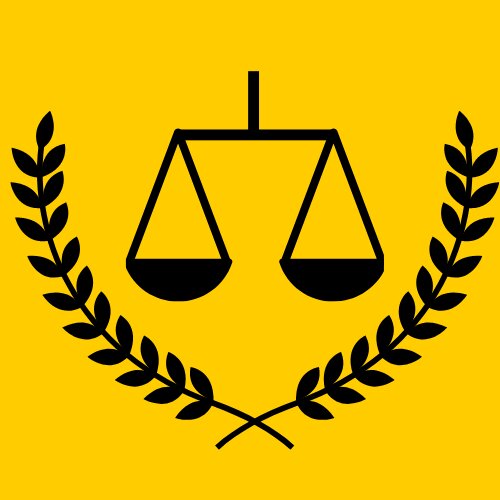Best Collaborative Law Lawyers in Bereaville
Share your needs with us, get contacted by law firms.
Free. Takes 2 min.
Free Guide to Hiring a Family Lawyer
List of the best lawyers in Bereaville, South Africa
About Collaborative Law in Bereaville, South Africa
Collaborative Law is an alternative dispute resolution method that emphasizes cooperation, respect, and open communication between parties, primarily in family law matters such as divorce, child custody, and property division. In Bereaville, South Africa, Collaborative Law offers individuals and families a way to resolve disputes without resorting to court litigation. The process involves each party working with their own trained collaborative lawyer and, where necessary, other professionals like financial advisors or mental health specialists. The goal is to reach mutually agreeable solutions through transparent negotiation, making the process less adversarial and more client-centered compared to traditional litigation.
Why You May Need a Lawyer
There are several circumstances in which seeking legal help in the collaborative law framework is essential. Common situations include:
- Divorce and separation: To settle matters such as division of assets, child custody, or maintenance agreements amicably.
- Child custody and access: For developing co-parenting plans that prioritize the child's wellbeing.
- Spousal or child maintenance: To agree on fair and sustainable financial arrangements.
- Civil disputes between family members: To resolve inheritance or other intra-family issues without entering litigation.
- Modification of previous agreements: If life circumstances change and you need to alter existing arrangements.
- Minimizing conflict: Where both parties wish to avoid adversarial court proceedings and maintain a positive relationship post-dispute.
A collaborative lawyer can help guide the negotiation process, ensure your rights are protected, and facilitate communication to ensure fair and lasting outcomes.
Local Laws Overview
Collaborative Law in South Africa, including Bereaville, is not governed by a single piece of legislation but operates within the broader framework of South African family and civil law. Key aspects include:
- Collaborative Law agreements are recognized as binding contracts between parties but may require court endorsement to become legally enforceable, particularly when concerning children or property division.
- Each party must be represented by a qualified collaborative lawyer throughout the process.
- The process is voluntary; all parties must agree to participate and disclose relevant information honestly and openly.
- If the collaborative process fails or one party withdraws, both parties must appoint new legal representation if they wish to proceed to litigation.
- Confidentiality is critical, and discussions during the process generally cannot be used as evidence in court if the process breaks down.
- For matters involving minor children, the Children’s Act is important, ensuring decisions are made in the child's best interests.
Local courts in Bereaville generally support collaborative agreements reached amicably, especially when they comply with national law and protect all parties, especially minors.
Frequently Asked Questions
What types of disputes are best suited for Collaborative Law?
Collaborative Law is best for family law matters such as divorce, child arrangements, maintenance, and division of property. It can also be used for other civil disputes where parties wish to resolve issues amicably outside of court.
Is Collaborative Law legally binding in Bereaville?
Collaborative agreements are binding as contracts between parties, but certain agreements (e.g., those involving children or immovable property) may require a court order to enforce legally.
Do both parties need to agree to use Collaborative Law?
Yes, the process is entirely voluntary. Both parties must commit to the process and agree not to initiate or threaten court proceedings during the collaboration.
What happens if we cannot reach an agreement?
If parties cannot resolve their issues, the collaborative process ends. Both must then appoint new legal representatives before pursuing litigation in court.
How is Collaborative Law different from mediation?
In Collaborative Law, each party has their own lawyer and all negotiations happen together in joint sessions. In mediation, a neutral mediator facilitates communication and negotiation, but may not provide legal advice to either party.
Are discussions during the collaborative process confidential?
Yes, communications and documents shared in the collaborative process are generally confidential and cannot be used as evidence in court if the process fails.
Can Collaborative Law be used for high-conflict divorces?
Collaborative Law works best when both parties are willing to cooperate and negotiate in good faith. In cases of extreme conflict or abuse, other legal avenues may be preferable.
How long does the Collaborative Law process usually take?
The timeline varies depending on the complexity of issues and the willingness of parties to negotiate. Generally, it is faster than litigation, often taking a few months rather than years.
What professionals might be involved besides lawyers?
Depending on the case, neutral financial advisors, mental health professionals, or child specialists may assist by providing advice and facilitating communication.
Do children's views get considered during the process?
Yes, especially for child-related matters, children's best interests are central. Professionals may help ensure children's voices are heard in line with the Children’s Act.
Additional Resources
If you need more information or assistance related to Collaborative Law in Bereaville, consider contacting:
- Law Society of South Africa: For finding registered collaborative lawyers in your area.
- Family Law Section, Department of Justice and Constitutional Development: Useful for understanding family law rights and obligations.
- South African Association of Collaborative Professionals: Offers education and resources about Collaborative Law practices.
- Bereaville Legal Aid Office: Provides low-cost or free legal services to qualifying individuals.
- Office of the Family Advocate: Assists in cases involving minor children to ensure their best interests are protected.
Next Steps
If you are considering resolving a dispute through Collaborative Law in Bereaville, follow these steps:
- Identify whether both parties are willing to participate in good faith.
- Research and select experienced collaborative lawyers in Bereaville.
- Schedule an initial consultation with a collaborative lawyer to discuss your situation and the process involved.
- If both parties agree, engage your collaborative legal teams and commence joint negotiation sessions.
- Utilize neutral professionals as recommended for financial, child, or emotional matters if needed.
- Once an agreement is reached, ensure it is documented clearly and submitted for court endorsement when necessary.
- If the process breaks down, consult your lawyer about alternative dispute resolution options or the next steps towards litigation.
Seeking professional legal guidance from a qualified collaborative lawyer ensures that your rights are protected and the process proceeds as smoothly as possible.
Lawzana helps you find the best lawyers and law firms in Bereaville through a curated and pre-screened list of qualified legal professionals. Our platform offers rankings and detailed profiles of attorneys and law firms, allowing you to compare based on practice areas, including Collaborative Law, experience, and client feedback.
Each profile includes a description of the firm's areas of practice, client reviews, team members and partners, year of establishment, spoken languages, office locations, contact information, social media presence, and any published articles or resources. Most firms on our platform speak English and are experienced in both local and international legal matters.
Get a quote from top-rated law firms in Bereaville, South Africa — quickly, securely, and without unnecessary hassle.
Disclaimer:
The information provided on this page is for general informational purposes only and does not constitute legal advice. While we strive to ensure the accuracy and relevance of the content, legal information may change over time, and interpretations of the law can vary. You should always consult with a qualified legal professional for advice specific to your situation.
We disclaim all liability for actions taken or not taken based on the content of this page. If you believe any information is incorrect or outdated, please contact us, and we will review and update it where appropriate.










